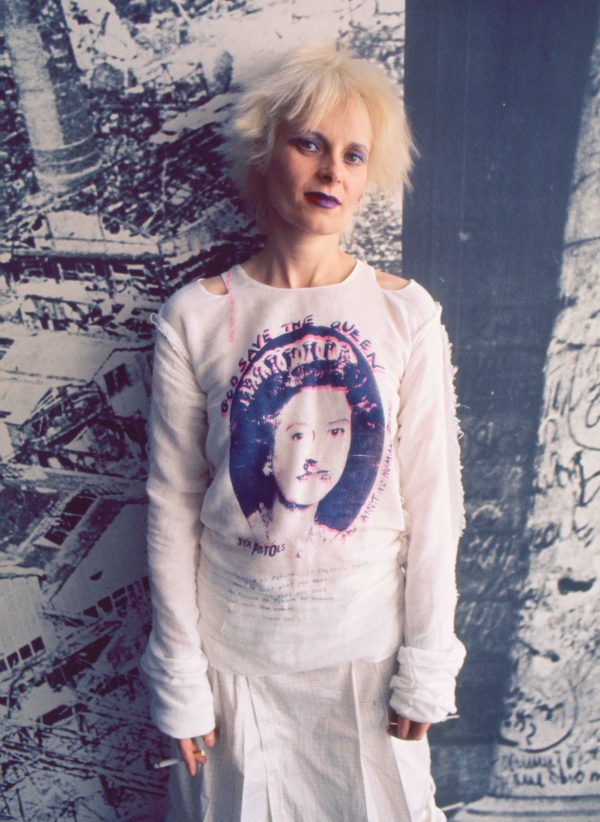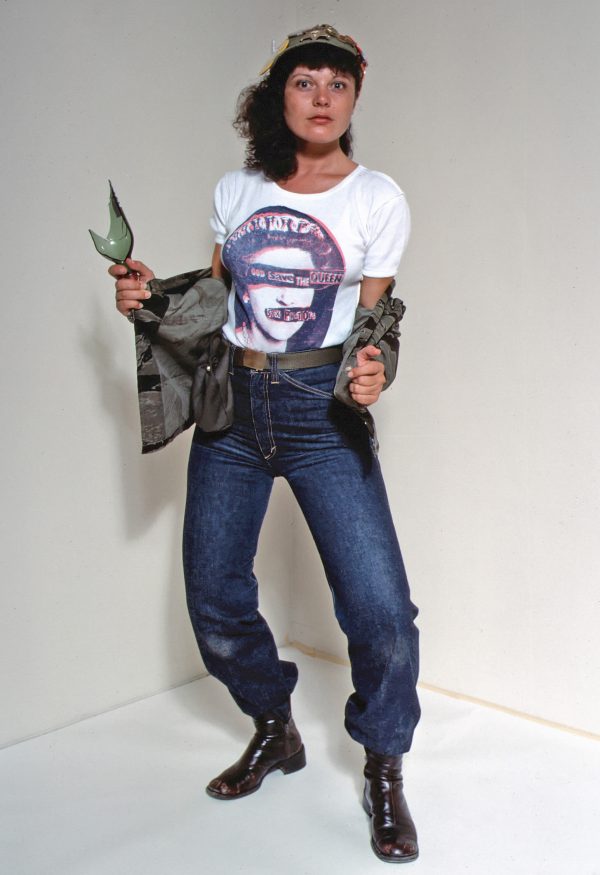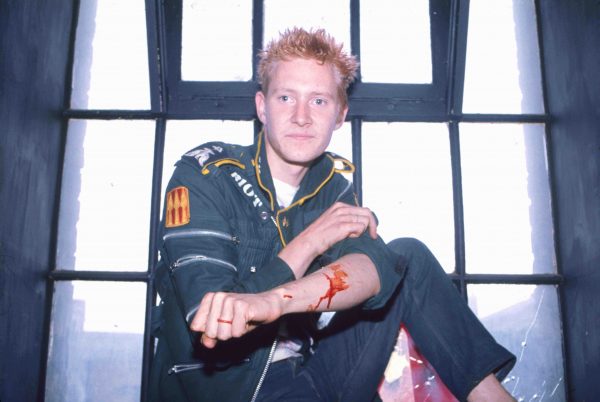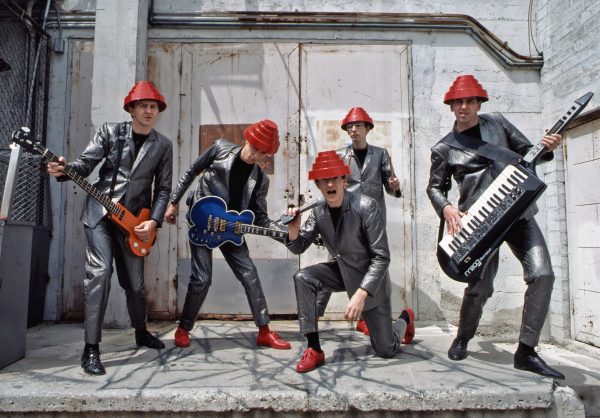As a photojournalist, I was intrigued to visit London, in May-June 1977 for Queen Elizabeth’s Silver Jubilee, to cover the punk rock scene. As luck would have it, I had booked a room at the Portobello hotel, where Johnny Rotten and Sid Vicious of the Sex Pistols were also staying. So one day we had lunch together, then I asked them to pose for me. Before my trip I had contacted their manager, Malcom McLaren, and I was invited to the legendary Riverboat party on the Thames (June 7, 1977). They held this concert on the neutral territory of the river, because their new single, “God Save the Queen” (released May 27, 1977), had been banned from playing on the radio and the band was not allowed to perform in London clubs, such as the Roxy and the Marquee.

The lyrics of the song were considered offensive, “God save the Queen, a fascist regime, it made you a moron, a potential H bomb. God save the Queen, she ain’t no human being. There is no future and England is dreaming. Don’t be told what you want, don’t be told what you need. No future, no future for you.”

Lead singer John Lydon, renamed Johnny Rotten, a sneering all around bad kid, was the catalyst responsible for the uncompromising anti-establishment attitudes of Punk Rockers. John Simon Ritchie, nicknamed Sid Vicious, a drummer who was hired to play bass guitar for the Sex Pistols, replacing Glen Matlock, became hooked on heroin with his girlfriend Nancy Spungen. Their tragic story of addiction and death was told in the 1986 movie Sid and Nancy directed by Alex Cox with Gary Oldman as Sid Vicious.

In London I visited the boutique of Vivienne Westwood, the designer who, in partnership with Malcolm McLaren, had created punk fashion clothes sold in their store at 430 Kings Road, renamed from SEX to Seditionaries. Ubiquitous were the white tee-shirts and ripped tops they designed with the logo of the Sex Pistols song “God Save the Queen.”

Back in Los Angeles, I photographed myself in my studio, dressed in punk style, wearing that tee-shirt, with jeans, army jacket, black boots and a cap to cover my long curly hair, brandishing a broken bottle to signify a combative attitude. Here is how I looked normally, still in my twenties, with my hair down and a red 1977 Queen’s Silver Jubilee tee-shirt.

I bought the album Never Mind the Bollocks: Here’s the Sex Pistols (released October 28, 1977). It is still in my vinyl collection. The word bollocks means nonsense or bullshit.

Kings Road in Chelsea was the heart of the punk rock scene, with poolrooms and clothing stores. Ripped clothes were the norm, held together by safety pins, that punk kids would also stick in their nose and ears. Short air greased to stick up straight, and brightly died; red, green, pink, violet. Geometric makeup. Vivienne told me, “Punk fashion is not something you buy in a store, but your own invention.” This punk style, which originated in London in 1977, influenced kids all over the world and can still be seen today, as a signifier of a rebellious attitude towards society.

The most shocking moment for me was when I hung out with Rodent, roadie for the punk rock band The Clash, in their rehearsal loft, before my appointment for a photo session. I was curious about this new trend of cutting yourself, so I asked, and he said, “I do it all the time, with scissors, I can show you right now.” I feel a bit guilt to admit that I let him do it so I could catch it on camera. That disturbing practice, of self-inflicted injury to relieve emotional pain, sadly has also not gone away.

The rock band DEVO (De-evolution), formed in 1973 by brothers Mark and Bob Mothersbaughs, brothers Gerald and Bob Casales, and Alan Myers, landed a record contract in 1978 and released the album: Are We Not Men? We Are Devo!, in 1979 Duty Now for the Future, in 1980 Freedom of Choice. They were clearly influenced by punk rock. I was an early fan, those records are also in my vinyl collection, and I had a photo session with DEVO in 1980.
For more photos, click on the Punk Rock, London series in the Elisa Leonelli, Photojournalist Collection at Claremont Colleges Digital Library.
